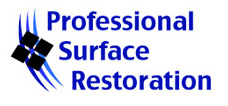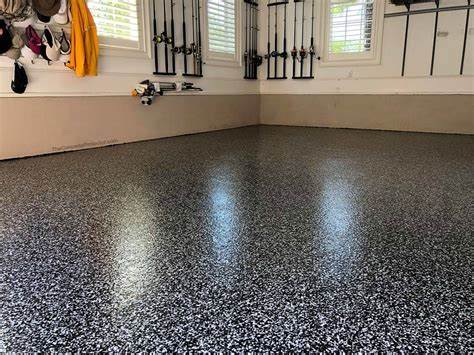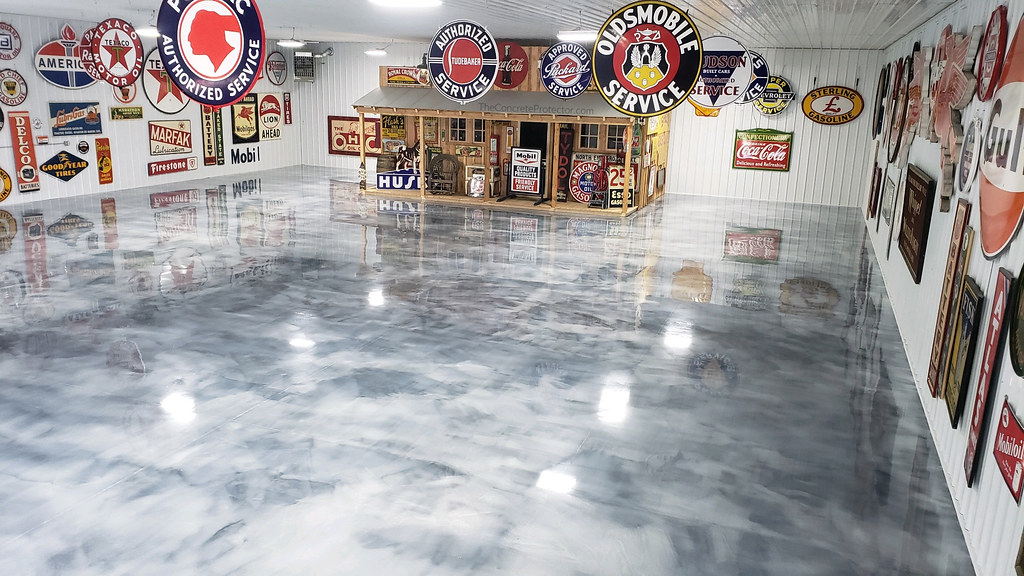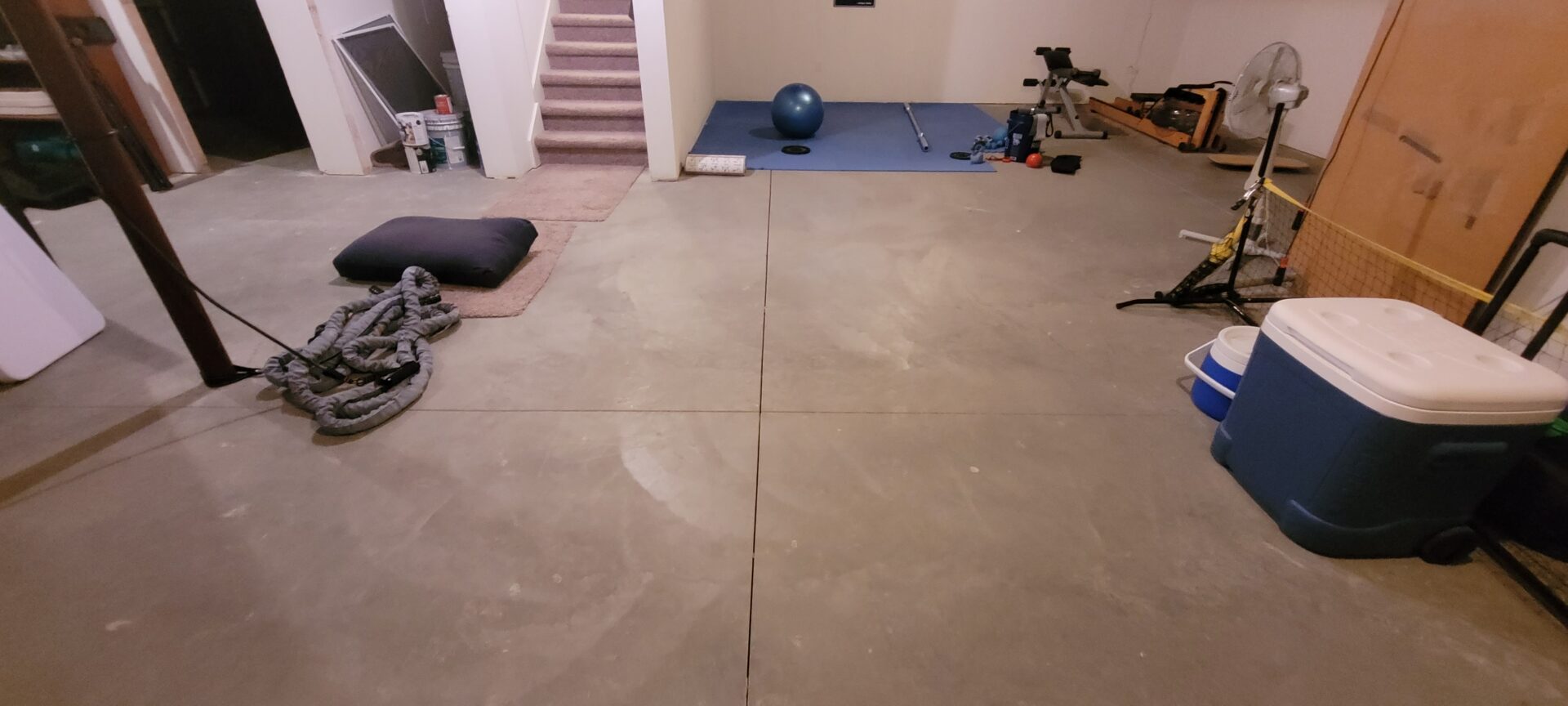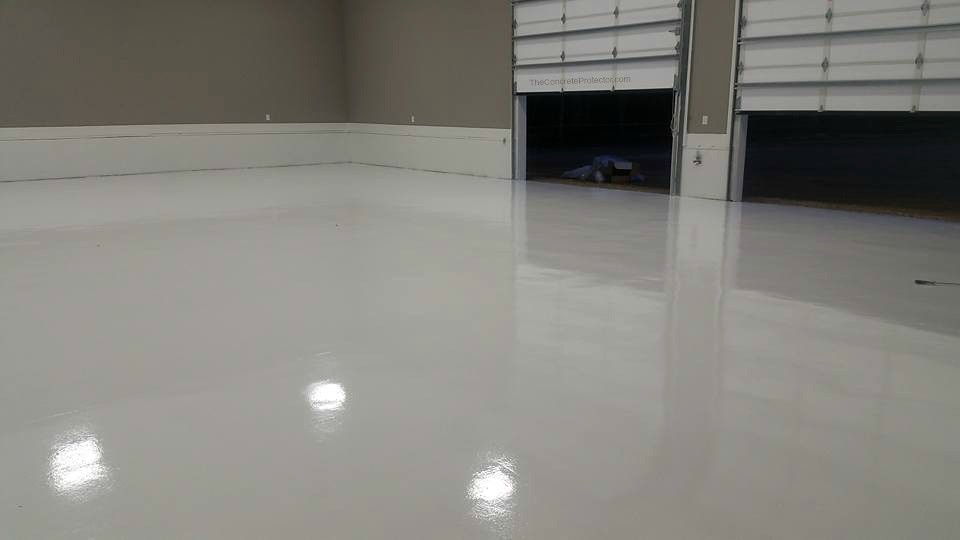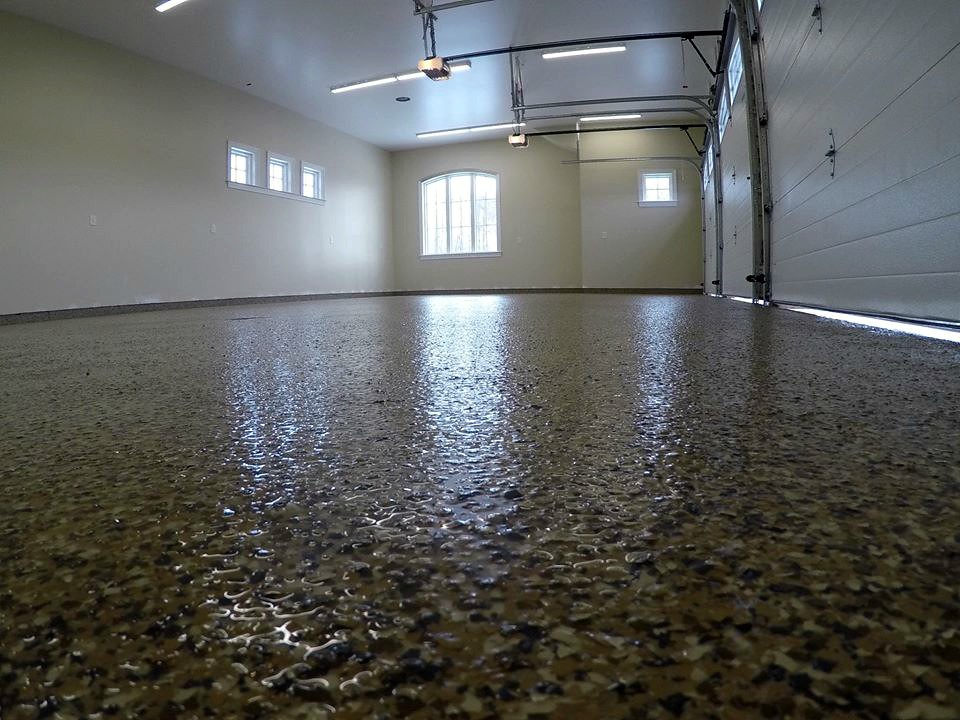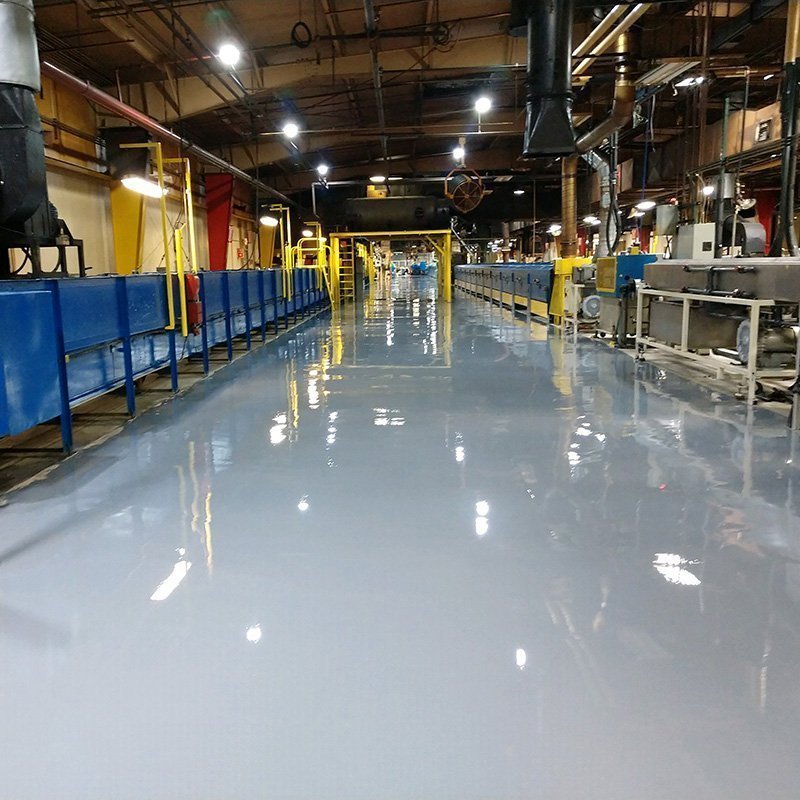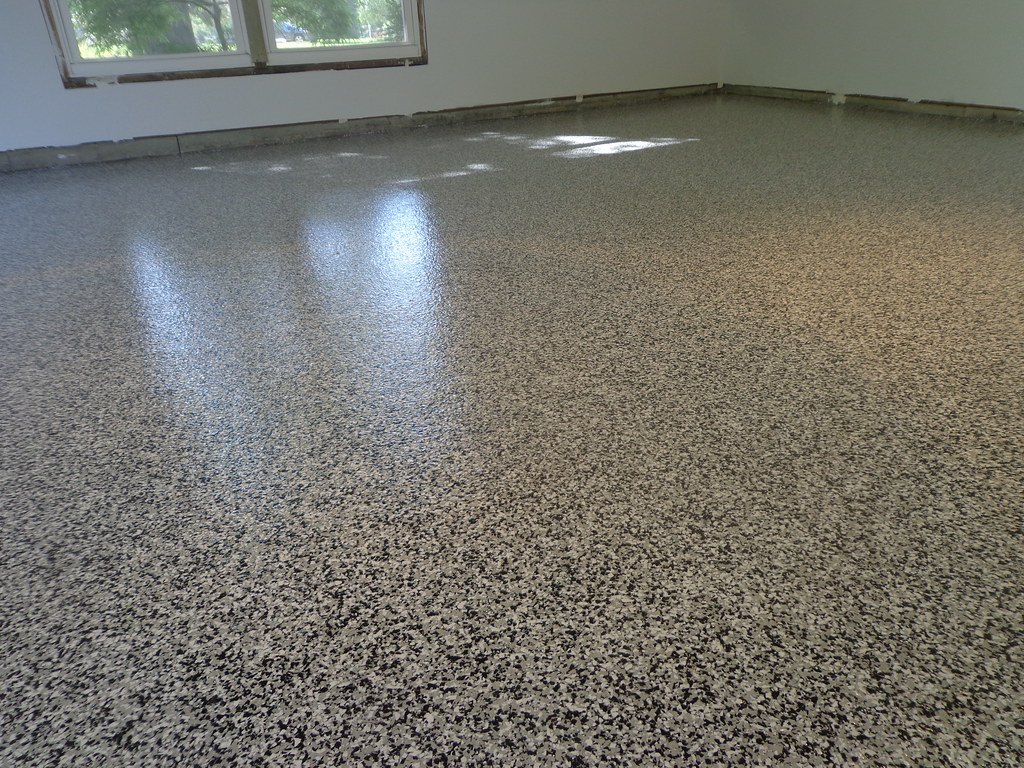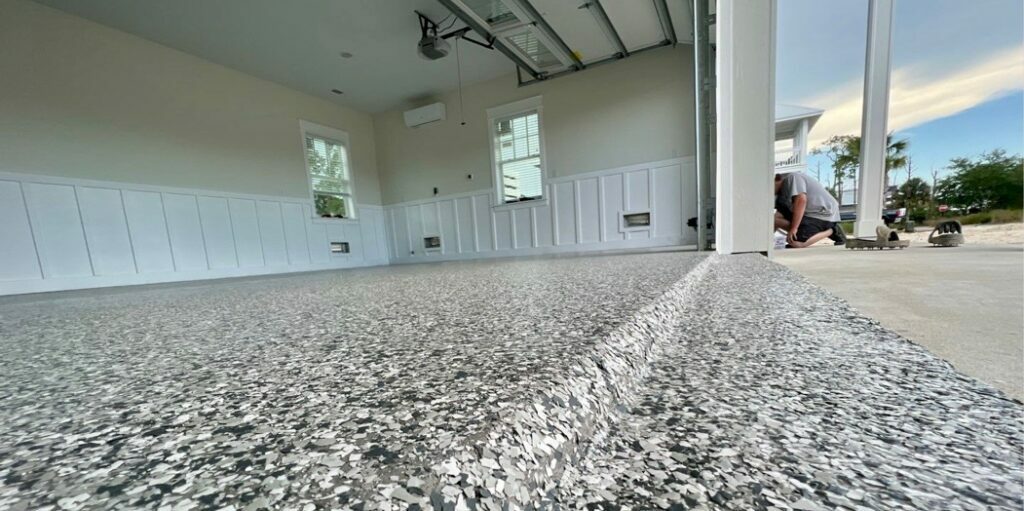
When most people think of a garage, they imagine a dusty space for storing cars, tools, or old boxes. But more homeowners are now realizing the untapped potential of their garage. With the right upgrades, this often-overlooked area can become an extension of your living space, perfect for hobbies, workouts, game nights, or even extra office space.
One of the most impactful upgrades to help with that transformation? Garage epoxy flooring.
A Foundation for Versatility
Garage epoxy flooring is no longer just about durability; it’s a design-forward, highly functional solution that transforms your garage from cold concrete to a clean, polished, and attractive surface. Epoxy comes in a wide variety of finishes, from sleek solid colors to decorative flake blends, metallics, and quartz styles, making it easy to match your personal style or the function of the space.
Want to create a home gym? A seamless epoxy surface is easy to clean and resistant to heavy weights and equipment.
Need a creative workshop? Epoxy resists oil, stains, and wear, meaning it’ll stand up to messy projects.
Dreaming of a man cave or rec room? Epoxy’s aesthetic appeal gives you the polished, finished look you want without the fuss of more expensive flooring options.
If you’re ready to turn your garage into a clean, functional hub for summer projects, now is the time to upgrade your floor.
Contact Professional Surface Restoration today to learn more about epoxy flooring and schedule your installation before the busy season begins.
RELATED ARTICLE: Top Trends in Epoxy Flooring for 2025
Built to Handle Real Life
Functionality is where epoxy truly shines. Unlike bare concrete, epoxy coatings provide a smooth, non-porous surface that resists dust, moisture, and stains. This makes maintenance a breeze. Whether you’re tracking in dirt from the yard or spilling paint during a weekend project, a quick mop or sweep is often all it takes to restore that showroom shine.
Epoxy also improves safety. Many epoxy finishes are slip-resistant, and their bright finish can even improve visibility by reflecting light throughout the garage. For homes in Northwest Ohio and Southeast Michigan, where weather often means wet boots and muddy gear, that can be a big plus.
RELATE ARTICLE: Now is the Perfect Time for Garage Epoxy Flooring
Customization That Fits Your Life
The real beauty of epoxy is that it adapts to your life. Have kids? Turn the garage into a play space or indoor biking area. Need extra room for guests? A clean, well-finished garage can double as an entertainment space or overflow for parties. Epoxy allows you to take full advantage of the square footage you already own.
For many families, the garage isn’t just a place to park, it’s the daily entry point to the home. Making it a clean, inviting, and multipurpose space starts with the floor. And once that foundation is in place, the possibilities open up.
Final Thoughts: Make the Most of Every Square Foot
Your garage doesn’t have to be a dusty, neglected storage zone. With epoxy flooring, it can become one of the most functional and impressive spaces in your home. Whether you’re looking to build a man cave, set up a home gym, or simply get more value out of your square footage, epoxy provides the style, durability, and easy maintenance that makes it all possible.
Epoxy Garage Flooring FAQs
Q. What is epoxy garage flooring made of?
A. Epoxy is a combination of resin and hardener that chemically reacts to form a strong, durable plastic-like surface. It bonds tightly to concrete and creates a smooth, sealed, and highly resistant finish.
Q. How long does it take to install epoxy flooring in a garage?
A. Most residential garage epoxy applications can be completed in 3-4 days, depending on the size of the space and the condition of the concrete.
Q. Is epoxy flooring slippery?
A. While epoxy can have a glossy finish, many formulations include slip-resistant additives to enhance traction and safety, especially in garages with frequent foot traffic or wet conditions.
Q. Will epoxy flooring hold up to cars, tools, and heavy equipment?
A. Yes. Epoxy is designed to withstand heavy use, including vehicle traffic, dropped tools, and garage equipment. It’s resistant to abrasions, stains, and impact damage.
Q. Can I choose the color or style of the epoxy finish?
A. Absolutely. Epoxy flooring comes in a wide range of colors, patterns, and decorative flakes or metallic finishes, allowing full customization based on your preferences.
If you’re ready to turn your garage into a clean, functional hub for summer projects, now is the time to upgrade your floor.
Contact Professional Surface Restoration today to learn more about epoxy flooring and schedule your installation before the busy season begins.
